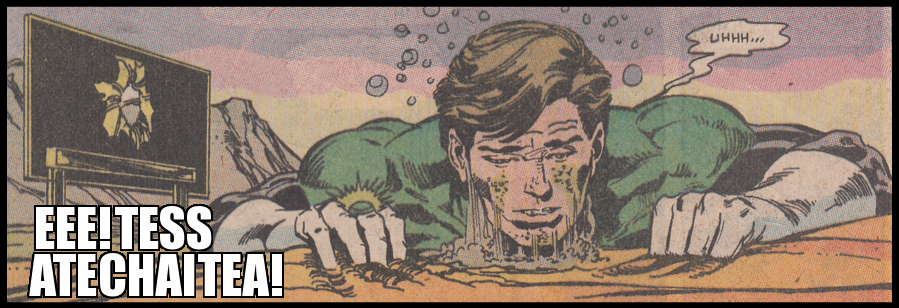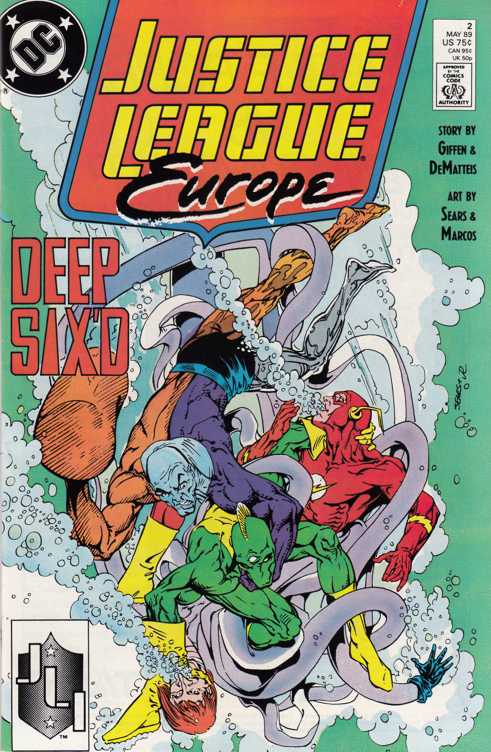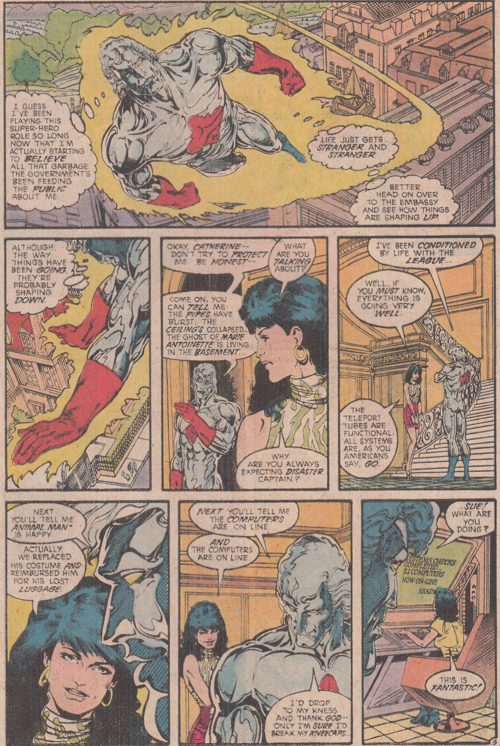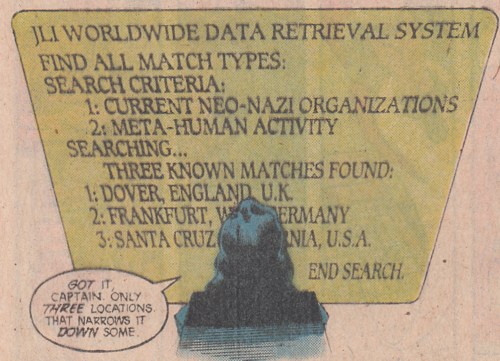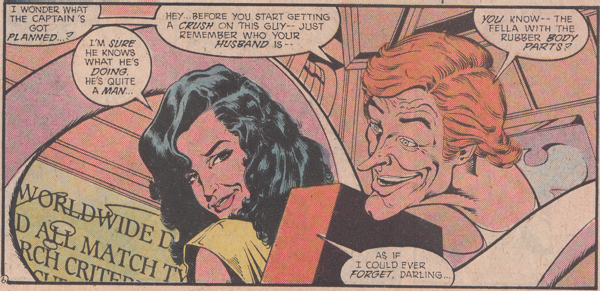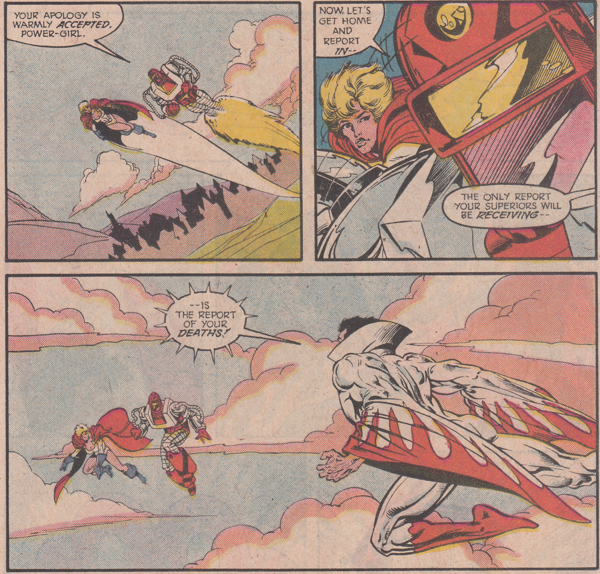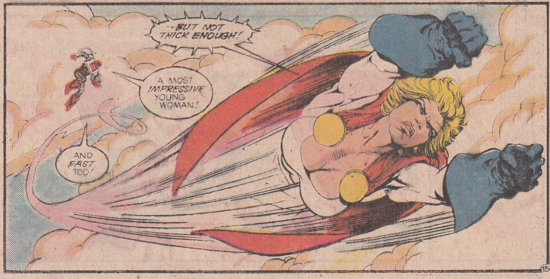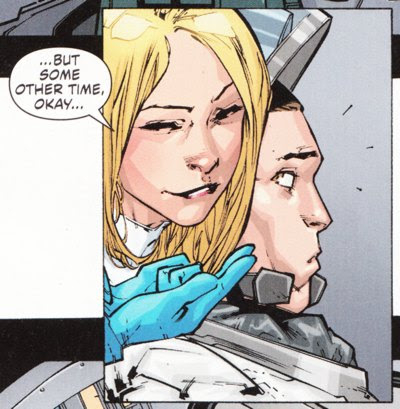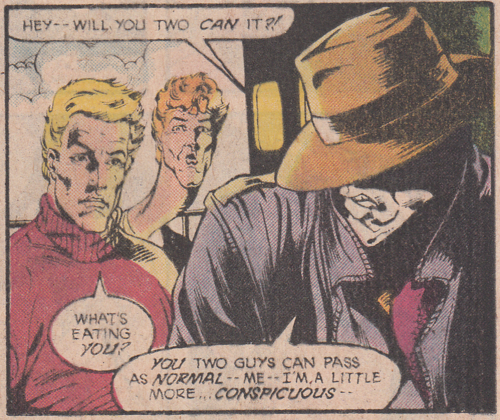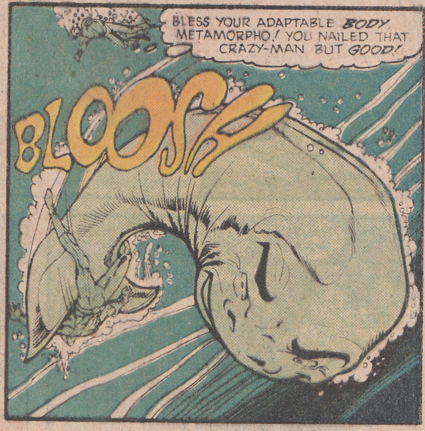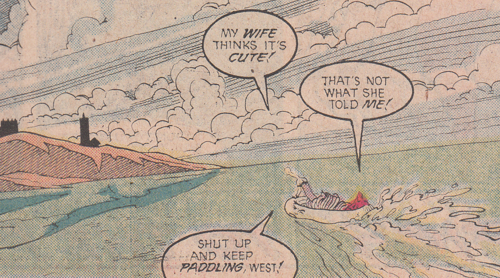Line 52: "Her inphant pass'd, her semi-terra'd feuture and here her-and-know, her iffrey liffing mement altergather, all her hypertenses prescent and currect."
Non-Lucy-Lips Version: "Her infant past, her cemeteried future and her here-and-now, her every living moment altogether, all her tenses present and correct."
"inphant pass'd"
"Her infant past" remains about her (or deep inside her at the middle of the stack) like a "passing phantom."
"her semi-terra'd feuture"
I suppose the "features" of a ghost or "phantom" could be described as "semi-terra'd" or "unearthly," not of this realm, incorporeal.
"here"
Moore keeps replacing "her" with "here" and I don't really find it meaningful. I suppose she is in the present so I guess that helps?
"her-and-know"
Alan Moore has some really ingenious Lucy Lips moments and then he has things like this that just seem like he's shifting one word to the closest possible next word without really revealing Lucia's subconscious. I suppose this statement just says, "Lucia knows herself and reveal herself through the things she's saying here-and-now." And also, I know I keep writing that all of this garbled narration is "Lucia speaking" when it obviously is just Lucia's day being narrated by an omniscient narrator. But that omniscient narrator may as well be Lucia's perception of reality. So just go with it.
"her iffrey liffing"
More stuff about how Lucia is the River Liffey. It's repeated so much it must be really important! Too bad I have no context for it!
"mement"
Every "moment" is a "meme." A "meme" is a unit of cultural information spread by imitation. Richard Dawkins coined the word in 1976 in his book The Selfish Gene. Moore uses it here to represent how Lucia lives and relives all of her living moments over and over again.
"altergather"
"Altogether" in that Lucia's "alternate selves" "gather" together in every living moment. She is each stacked doll individually and also "altogether" at all "living" "moments" of her "here-and-now".
"hypertenses"
All of Lucia's "tenses" or moments of her life (past, present, future) compose who she is. Perhaps "hyper" because she is so full of energy for an 80 year old because she is also a toddler and a teenager and a horny middle-aged woman too. Perhaps in the sense of "hyperspace" as well in that Lucia exists "over" or behind the surface of reality.
"prescent"
"Present" and "prescient." "Prescient" is to show knowledge of an event before it takes place. This explains how her "future" is also incorporated into her being (which is also just how time and reality work in Jerusalem (and probably reality)).
"currect."
"Correct" and "current." As in all of Lucia's "moments" are "currently" within her and that's how it should be ("correct").
Non-Lucy-Lips Version: "Her infant past, her cemeteried future and her here-and-now, her every living moment altogether, all her tenses present and correct."
"inphant pass'd"
"Her infant past" remains about her (or deep inside her at the middle of the stack) like a "passing phantom."
"her semi-terra'd feuture"
I suppose the "features" of a ghost or "phantom" could be described as "semi-terra'd" or "unearthly," not of this realm, incorporeal.
"here"
Moore keeps replacing "her" with "here" and I don't really find it meaningful. I suppose she is in the present so I guess that helps?
"her-and-know"
Alan Moore has some really ingenious Lucy Lips moments and then he has things like this that just seem like he's shifting one word to the closest possible next word without really revealing Lucia's subconscious. I suppose this statement just says, "Lucia knows herself and reveal herself through the things she's saying here-and-now." And also, I know I keep writing that all of this garbled narration is "Lucia speaking" when it obviously is just Lucia's day being narrated by an omniscient narrator. But that omniscient narrator may as well be Lucia's perception of reality. So just go with it.
"her iffrey liffing"
More stuff about how Lucia is the River Liffey. It's repeated so much it must be really important! Too bad I have no context for it!
"mement"
Every "moment" is a "meme." A "meme" is a unit of cultural information spread by imitation. Richard Dawkins coined the word in 1976 in his book The Selfish Gene. Moore uses it here to represent how Lucia lives and relives all of her living moments over and over again.
"altergather"
"Altogether" in that Lucia's "alternate selves" "gather" together in every living moment. She is each stacked doll individually and also "altogether" at all "living" "moments" of her "here-and-now".
"hypertenses"
All of Lucia's "tenses" or moments of her life (past, present, future) compose who she is. Perhaps "hyper" because she is so full of energy for an 80 year old because she is also a toddler and a teenager and a horny middle-aged woman too. Perhaps in the sense of "hyperspace" as well in that Lucia exists "over" or behind the surface of reality.
"prescent"
"Present" and "prescient." "Prescient" is to show knowledge of an event before it takes place. This explains how her "future" is also incorporated into her being (which is also just how time and reality work in Jerusalem (and probably reality)).
"currect."
"Correct" and "current." As in all of Lucia's "moments" are "currently" within her and that's how it should be ("correct").
